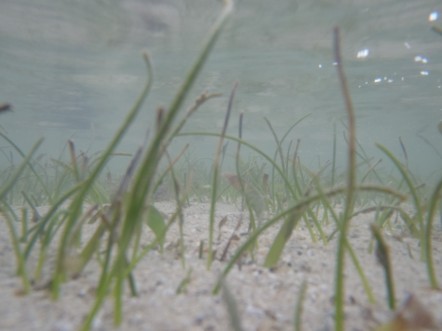So, it’s five days into the new year, and I haven’t blogged here in ages. Not that I didn’t meant to, but haven’t really had the time. While doing the Conservation Science module last term, I realised many of my drafts from 2012 are on themes brought up in the course, and I was hoping to have the time to publish a few of those post this holiday. But apparently not (Michaelmas term project on coral reef fisheries has been taking up almost all my time).
Still, there is time for a quick post. I’m nearing the end of my three years in Cambridge, and by end of June, I should be a fully-fledged, supposedly-thinking adult. Ready to enter the real, working world. Only I have decided to do a Masters in the UK, and so chances are, I’m gonna be there another year.
Although I am still unsure of what exactly I’ve learnt (academically speaking) during the past few years (a lot about general earth science and palaeontology, and various other bits and bobs that people don’t really need to go to university to learn, as I found out), I know I’ve changed quite a bit, especially in terms of dreams and career aspirations.
Previously, rather idealistically, I was dreaming of being (no surprise) some TV presenter for nature documentaries, cos Attenborough (like deep-down ideas, which I always knew was rather improbable haha). Perhaps a little more realistically, a scientist adventurer, going to cool places and collecting data, maybe climbing cliffs and finding new species, going on expeditions and things. Lots of camping and field work, and being out in nature, and marrying my love for outdoors and field work with science and conservation.
But of late, I think as much as I always wanted that, I realised that perhaps I’m not really meant to? My field identification skills are almost nought (I know one can work on that, but it takes a lot of time that I apparently, no matter what I say/think, am unwilling to fork out to learn. I can ID the 11 species of seagrasses in Singapore though! hahahah.), and it’s not helped my the syllabus in Cambridge which has virtually zero emphasis on that, and I don’t have any strong interest in a particular group of animals (or plants), and I’ve always been interested in all the big picture, inter-disciplinary things anyway.
So I guess, I will probably still be spending a lot of time behind a computer and a desk for my work, as much as I didn’t want it at all a couple of years ago. Though of course, my life lies before me (more or less) and who knows what the future holds? Apart from the certainty of climate change.

Seagrasses. The only things I can give a latin name to off the top of my head, thanks to TeamSeagrass (: Most of the ones in Singapore anyway.


Hi Jocelyne! Just wanted to leave you a note to say take heart, and don’t feel discouraged! If you really do want to work in conservation, you don’t necessarily need to be good at species identification or even field skills. Heaven knows I never was, and still am not! Conservation is all kinds of things, and the more sciencey stuff is just one end of the spectrum, where people focus on studying biology and ecology and all that. I never had a proper science background so I was always handicapped when it came to that. And I’ve discovered since that I’m not actually that much of a field person (I still struggle with guilt over that, haha!). Happily enough, people who aren’t interested in any one particular group of taxa, and/or prefer bigger-picture, interdisciplinary stuff, may actually be more suited to doing real-world, applied conservation on the ground 🙂 I found that what helped me personally was to take a break from academia (I did an arts degree, and at that age I still had absolutely no idea what I wanted to do with my life, so I didn’t even have any real career aspirations). Over the next 5 years after my degree I worked and volunteered in different fields, different jobs and with different organisations. That was when I felt myself being pulled strongly towards conservation, discovered my love for bats, and decided to do a Masters in order to solidify my career path in that direction. And in time I found that my interdisciplinary background has served me very well in real-world conservation! So don’t worry, conservation really is so much more than just science; if you’re more interested in the human side of things then there are even integrated projects now that include both conservation and social development, there’s conflict resolution and responsible management of natural resources, even environmental policy…the possibilities are endless! But of course, if you’ve decided that you’d rather step away from conservation altogether, that is totally fine too 🙂 Just wanted to let you know that your options aren’t limited or restricted just because your strengths don’t lie in the more scientific aspects of conservation. And it’s ok to give yourself time to figure it out, you don’t need to rush into anything 🙂 Good luck Jocelyne, and all the best!
Thanks Sheema! Always nice hearing other people’s stories and its really encouraging 🙂